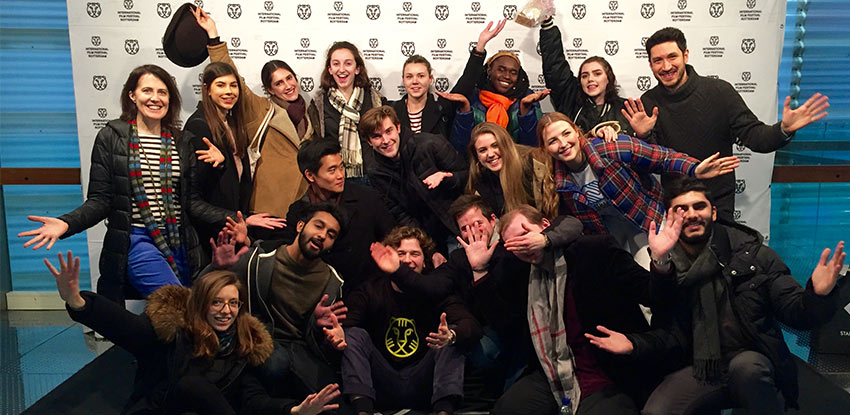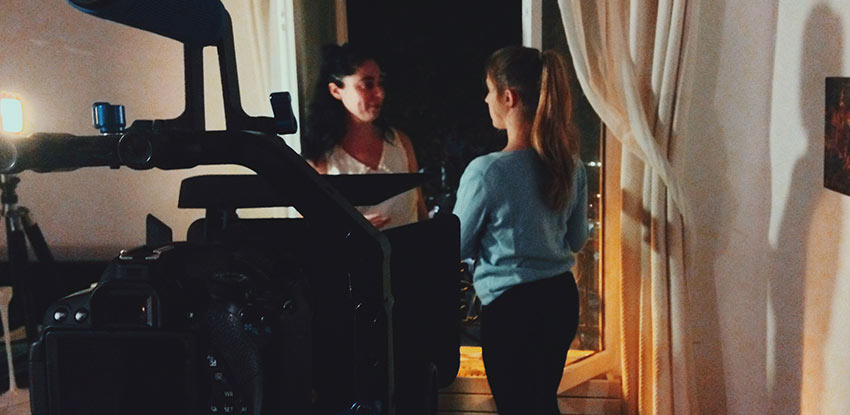- About AUP
- History of AUP
- Mission & Core Values
- Vision and Leadership
- AUP Recognition
- Alumni Success
- Campus Development
- Arts at AUP
- Policies & Guidelines
- Academics
- Undergraduate
- Graduate Programs
- MA in Diplomacy and International Law
- MA in Global Communications
- MSc in Human Rights and Data Science
- MA in International Affairs
- MA in International Affairs, Conflict Resolution, and Civil Society Development
- MSc in International Management
- MSc in Strategic Brand Management
- Find Your Thesis Advisor
- Previous Programs
- Cultural Program
- Faculty
- Summer School
- Research Centers
- The Center for Critical Democracy Studies
- Upcoming Events
- Research Projects
- Fellows’ Publications
- Publishing
- Curriculum
- Community
- Partnerships
- Visiting Scholars
- CCDS Highlights
- Atelier de Théorie Politique – Paris
- Critical Theory 101: Future Directions and New Challenges
- Martti Koskenniemi on “The Law of International Society: A Road not Taken”
- Academic Freedom Symposium
- Tocqueville Colloque 2023
- Violent Turns Conference
- Degenerations of Democracy
- DEMOS21 Inaugural Event
- What Demos for the 21st Century?
- The Paris Centennial Conference
- Justice Stephen Breyer
- Civic Jazz - The Launch of the Center
- Past Events
- FR
- The Center for Writers and Translators
- The George and Irina Schaeffer Center for the Study of Genocide, Human Rights and Conflict Prevention
- The Joy and Edward Frieman Environmental Science Center
- The Center for Media, Communication & Global Change
- The Center for Critical Democracy Studies
- Departments
- Academic Resources
- Academic Affairs
- Academic Calendar
- Academic Resource Center
- Library
- Registrar's Office
- Teaching and Learning Center
- Accessibility & Accommodation Services
- AI@AUP: A Campus-Level Initiative
- Quai D'Orsay Learning Commons
- Paris as Classroom
- ACE
- Admissions
- Student Life
- Campus
- Student Leadership & Involvement
- Paris
- Support Services
- Student Life Help Desk
- Student Accounting Services
- Student Immigration Services
- Student Grievance Procedure
- Diversity and Inclusion
- Health & Well-being
- Digital Student Handbook
- News
- Events
- AUP Giving
- Housing Offer for 2025-2026
- IT Services
- Alumni
- About AUP
- History of AUP
- Mission & Core Values
- Vision and Leadership
- AUP Recognition
- Alumni Success
- Campus Development
- Arts at AUP
- Policies & Guidelines
- Academics
- Undergraduate
- Graduate Programs
- MA in Diplomacy and International Law
- MA in Global Communications
- MSc in Human Rights and Data Science
- MA in International Affairs
- MA in International Affairs, Conflict Resolution, and Civil Society Development
- MSc in International Management
- MSc in Strategic Brand Management
- Find Your Thesis Advisor
- Previous Programs
- Cultural Program
- Faculty
- Summer School
- Research Centers
- The Center for Critical Democracy Studies
- Upcoming Events
- Research Projects
- Fellows’ Publications
- Publishing
- Curriculum
- Community
- Partnerships
- Visiting Scholars
- CCDS Highlights
- Atelier de Théorie Politique – Paris
- Critical Theory 101: Future Directions and New Challenges
- Martti Koskenniemi on “The Law of International Society: A Road not Taken”
- Academic Freedom Symposium
- Tocqueville Colloque 2023
- Violent Turns Conference
- Degenerations of Democracy
- DEMOS21 Inaugural Event
- What Demos for the 21st Century?
- The Paris Centennial Conference
- Justice Stephen Breyer
- Civic Jazz - The Launch of the Center
- Past Events
- FR
- The Center for Writers and Translators
- The George and Irina Schaeffer Center for the Study of Genocide, Human Rights and Conflict Prevention
- The Joy and Edward Frieman Environmental Science Center
- The Center for Media, Communication & Global Change
- The Center for Critical Democracy Studies
- Departments
- Academic Resources
- Academic Affairs
- Academic Calendar
- Academic Resource Center
- Library
- Registrar's Office
- Teaching and Learning Center
- Accessibility & Accommodation Services
- AI@AUP: A Campus-Level Initiative
- Quai D'Orsay Learning Commons
- Paris as Classroom
- ACE
- Admissions
- Student Life
- Campus
- Student Leadership & Involvement
- Paris
- Support Services
- Student Life Help Desk
- Student Accounting Services
- Student Immigration Services
- Student Grievance Procedure
- Diversity and Inclusion
- Health & Well-being
- Digital Student Handbook
- News
- Events
- AUP Giving
- Housing Offer for 2025-2026
- IT Services
- Alumni
Related Links
Film Studies
Undergraduate Program
Major Overview
A film studies degree at AUP explores how the moving image shapes and reflects our contemporary world. As a student, you will be part of a major that is analytical, interdisciplinary and international in scope. Through your courses you will use film as a lens to study history, culture, politics, theory and aesthetics and our hands-on screenwriting and filmmaking classes give you the chance to put your understanding into action. With our combined approach, you will graduate as a ‘technically savvy’ liberal arts student, able to process and engage the contemporary world.
LEARNING OUTCOMES
The educational goals for this major are as follows:
- You should be able to analyse and differentiate filmic discourses on subjects in terms of narrative structure, cinematic techniques, and cultural contexts.
- You should be able to trace the rise and development of contemporary cinema as an art form, industry and cultural product.
- You should be able to distinguish individual styles and techniques of select directors and place the work in context with cinema history and aesthetics.
- You should gain a basic understanding and ability to produce film language, either mastering of video production or the techniques of screenwriting.
Learning Environment
In an intimate, multicultural setting, you will be encouraged to think critically about the aesthetics and theories of film and will learn the basics of production, direction, writing, and editing, which will ensure your ability to manage small productions. Outside of the classroom, you will have many networking opportunities through our master classes, visits with directors and our trips to festivals and screenings. Additionally, Paris’s broad cinematic selection, as well as its unique resources, including La Cinémathèque, will perfectly complement your education.
Major Components
Build Your Degree
With every single one of our majors, you’ll find a carefully curated medley of core courses and electives, which will provide you with the tools you need to establish an unshakeable foundation in the principles and concepts fundamental to your growth within your disciplines of choice. Many majors also enable you to specialize further within the broader area of study.
- Core Courses
-
Core Courses
We aim to help you develop a range of skills, capacities, and modes of inquiry that will be crucial for your future since employers and graduate schools are looking for the critical thinking and innovative problem-solving skills that are associated with a liberal arts education, including sophisticated writing abilities, willingness to pose difficult questions, and an understanding of the historical and cultural contexts surrounding a topic or decision.
- Electives
-
Electives
Each elective provides you with entry to a variety of subject areas which you can choose among to further focus your studies. With the help of your academic advisor, you’ll be able to tailor your major so that it most effectively prepares you for the next step in your academic and professional journey. The Film Studies major offers three main subject areas for your electives:
- Film Pragmatics and the Art of Directing
- Film Genres and Topics
- International Cinema.
Core Courses
The Film Studies core courses, which you must take as part of the major requirements, will provide you with the tools you’ll need to ground your present and future studies. Your introduction to the fundamentals of Filmmaking will help pave the way for your successful completion of other Film Studies courses.
How does the unique language of cinema make meaning and convey emotions? This course provides multiple answers to that question by introducing the formal characteristics of film and enables the students to acquire the key vocabulary necessary to critically describe, analyse and interpret contemporary cinema. Each week, classes will focus on a foundational concept, ranging from principles of narration to different components of film style, and from why cinema matters to issues of spectatorship. Throughout the course, students will encounter a wide array of feature films from different genres around the globe. Students will also have the opportunity to practise close textual analysis through assignments, and during class discussions delve deep into interpreting the dramatic functions of elements of style in the context of a single film. Students are expected to participate in these activities in order to build their confidence and command over technical terminology, and work towards attaining their own carefully reasoned interpretations of film texts. In addition, students will learn about Parisian film culture and different approaches to film criticism through lectures and assignments.
VIEW DETAILS >
This course provides a survey of the media and its function in today’s society. It introduces students to the basic concepts and tools necessary to think critically about media institutions and practices. In addition to the analysis of diverse media texts, the course considers wider strategies and trends in marketing, distribution, audience formation and the consequences of globalization. By semester’s end, students will understand the basic structures of today’s media and be able to provide advanced analysis that weighs the social and political implications of its products.
VIEW DETAILS >
This course is designed to give you strong technical and conceptual skills in video production. This course will prepare you for future video work in film, journalism, media and communications, studio art, and can be useful across many other disciplines. You will learn to create several complete film and audio projects, each challenging you to explore new skills. Class time will be divided into lectures, screenings, and mostly in-class labs and critique. Homework will consist of readings, writing responses, shooting, editing and screenings.
VIEW DETAILS >
This course surveys the earliest periods of cinema from its inception in the late-19th century up to its consolidation as a form of mass art by the beginning of World War II. At its point of origin,cinema was considered "an invention without a future" by its makers, but we will put this idea to test by exploring the uncanny shocks of the very first short films, through the development of visual storytelling across decades of experimentation, culminating in the extravagant, technically dazzling productions of the 1920s. From then onwards, we will investigate the late silent and early sound cinema through a global lens, making transnational discoveries on how the invention of cinema travelled alongside radical ideas at a time of political upheaval. Through readings and select primary materials, the students will learn about the contextual study of film by considering the technological, economic, aesthetic and social factors that shaped the circumstances of the films' production, exhibition and reception.
VIEW DETAILS >
This course surveys the richest and most alluring period of cinema from its peak following the end of World War II, through the global movements that revitalized its decline, to its subsequent reformation by digital technologies at the turn of the century. It was by no coincidence that cinema was dubbed the art of the 20th century: taking advantage of technological advancements, newer generations of filmmakers reinvented the expressive possibilities of cinema by turning their cameras directly onto social realities and into individual psyches. Each week, the course will explore key developments in international film cultures by situating films within broader social, political, and cultural contexts. The course will also map the influential aesthetic trends,significant critical developments, and fundamental institutional factors that altogether configured cinema as a voice for political comment as well as a medium of entertainment. Through weekly readings and class discussions, students will learn about the irresistible power of international cinemas and the differing national traditions that resisted the ideological and commercial dominance of Hollywood.
VIEW DETAILS >
What precisely is cinema’s relationship to reality and the real world? Is cinema a form of art, an escapist mode of entertainment, or a means of ideological control? In what ways have technological developments impacted filmmaking and its cultural, social and political functions? This course explores enduring questions of film theory: the history of ideas concerning cinema as medium of art, entertainment and technology, and the multifaceted effects films are claimed to have upon their spectators. The course will explore central debates about the nature of film and provide an opportunity to reflect on different—and often competing—theoretical frameworks. Students will read foundational writings of film theory, critically evaluate the conceptual underpinnings of key commentators, and discuss the validity of theoretical models through close analyses of seminal films.
VIEW DETAILS >
Involves a particularly focused look at an important aspect of film theory or history, a filmmaker, actor or actress, or a cinematic topic or genre. Subjects will vary according to the particular interest of the professor, with the course work aiming at developing methodical and critical skills of analysis.
VIEW DETAILS >
The Senior Seminar is the Capstone for Film Studies majors, where they develop an independent project (critical paper, short film, feature script)under the guidance of the instructors.
VIEW DETAILS >
A Senior Project is an independent study representing a Major Capstone Project that needs to be registered using the Senior Project registration form. (Download: https://aupforms.formstack.com/workflows/senior_project)




